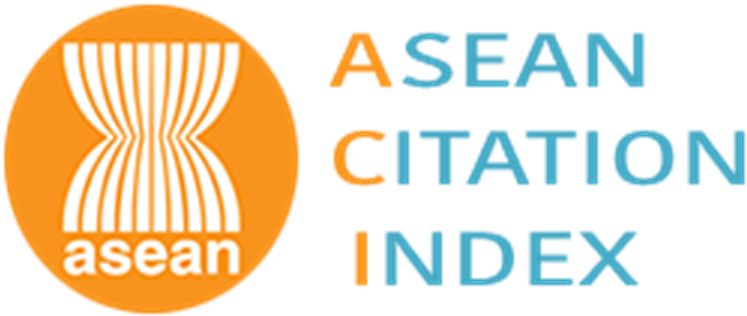การพัฒนารูปแบบการบริหารจัดการธุรกิจก่อสร้างแบบครบวงจรเพื่อเพิ่มขีดความสามารถในการแข่งขัน
The Development of Complete Service Construction Business Management Model to Enhance Competitiveness Capability
Abstract
การวิจัยครั้งนี้มีวัตถุประสงค์เพื่อสร้างรูปแบบและจัดทำคู่มือการบริหารจัดการธุรกิจก่อสร้างแบบครบวงจรเพื่อเพิ่มขีดความสามารถในการแข่งขัน การวิจัยเป็นแบบผสมผสาน โดยการวิจัยเชิงคุณภาพใช้การสัมภาษณ์เชิงลึกผู้เชี่ยวชาญ จำนวน 9 คน และการสนทนากลุ่มเพื่อพิจารณารูปแบบและเนื้อหาในคู่มือโดยผู้ทรงคุณวุฒิจำนวน 12 คน ส่วนการวิจัยเชิงปริมาณใช้แบบสอบถามกับผู้ประกอบการและผู้บริหารระดับผู้จัดการในอุตสาหกรรมก่อสร้างพื้นที่กรุงเทพฯและปริมณฑล จำนวน 469 คน สถิติที่ใช้ คือ ค่าความถี่ ร้อยละ ค่าเฉลี่ย ส่วนเบี่ยงเบนมาตรฐาน และการวิเคราะห์องค์ประกอบเชิงสำรวจ ผลการวิจัยสรุปได้ว่ารูปแบบการบริหารจัดการธุรกิจก่อสร้างแบบครบวงจรเพื่อเพิ่มขีดความสามารถในการแข่งขันประกอบด้วย 11 องค์ประกอบดังนี้ 1) การจัดการองค์กร 2) การจัดการทรัพยากรมนุษย์ 3) การจัดการเครื่องมือเครื่องจักรและเทคโนโลยีการก่อสร้าง 4) การจัดการด้านตลาดและการขาย 5) การจัดการกระบวนการปฏิบัติการก่อสร้าง 6) การจัดการจัดซื้อวัสดุก่อสร้าง 7) การจัดการความสัมพันธ์กับพันธมิตรหลักทางธุรกิจ 8) การจัดการความปลอดภัย อาชีวอนามัยและสภาพแวดล้อม 9) การจัดการบัญชีและการเงิน 10) การจัดการต้นทุน เครื่องมือ เครื่องจักรและอุปกรณ์ก่อสร้าง และ 11) ผลลัพธ์ทางธุรกิจก่อสร้าง คู่มือที่พัฒนาขึ้นมีความเหมาะสม สอดคล้องกับวัตถุประสงค์ เนื้อหาครอบคลุมทุกองค์ประกอบ สามารถนำไปประยุกต์ใช้ได้จริงโดยได้รับผลการประเมินจากผู้เชี่ยวชาญมีความเหมาะสมอยู่ในระดับมากที่สุด (x ̅ = 4.80).
The purposes of this research were to create the development model and create the manual for the complete Construction Service Business management model to enhance competitiveness capability. The selected methodologies of this research were mixing qualitative and quantitative methods. The qualitative researches were conducted with two representative groups: 1) In-depth interviews with 9 professional respondents through purposive sampling technique and 2) Focus group discussion with 12 experts to assess content consistency and evaluate this development model and manual. And the quantitative research was conducted by the questionnaire-based survey with 469 respondents, comprising entraprenuers and managers working in construction business located in the Bangkok Metropolitan and suburb area. The instruments used in this study were in-depth interviews and questionnaires. The statistics including frequencies, percentages, means, standard deviations, and factor analysis.The results showed that there were: 13 components; 1) organization management 2) construction law management 3) risk management 4) construction operation management 5) occupational safety, health and environment management 6) machinery and construction technology management 7) Cost management of construction machine tool and equipment 8) construction material purchase management 9) accounting and finance management 10) human resource management 11) key partners management 12) marketing and sale management, and 13) business outcomes and respondents agree that this manual were appropriate at the highest level (x = 4.80).
Keywords
[1] Krungsri research center. (2019, July). Business/ Industry Trends in 2019-21. [Online]. (in Thai). Available: https://www.krungsri.com/bank/get media/7fe1e975-13f4-4040-a276-0d40841e504b/ IO_Construction_Contractor_190606_TH_EX.aspx
[2] W. Uampai, “External factors that affect the small and medium construction business,” M.S. thesis, Department of Engineering and Construction Management, Faculty of Engineering, King Mongkut's University of Technology Thonburi, 2008 (in Thai).
[3] A. Osterwalder and Y. Pigneur, Business Model Generation – A Handbook for Visionaries, Game Changers and Challengers. New Jersey; John Wiley and Sons, Inc., Hoboken, 2010.
[4] M. E. Porter, The Competitive Advantage of Nation. New York: Free Press, 1990.
[5] L. H. Gulick, L. F. Urwick, and C. H. Pforzheimer, Papers on the Science of Administration. New York: Institute of Public Administration, 1973.
[6] J. F. Hair Jr, W. C. Black, B. J. Babin, and R. E. Anderson, Multivariate Data Analysis, 7th ed. New Jersey : Prentice Hall, Upper Saddle River, 2010.
[7] M. Cheng, C. Wei Su, and H. You, “Optimal project organization structure for construction management,” Journal of Construction and Engineering Management, vol. 129, no. 1, 2003.
[8] A. Radwan and E. Elwakil, “Function and units based model for construction organization performance,” International Journal of Architecture, Engineering and Construction, vol. 5, no. 3, pp. 128–137, 2016.
[9] B. Gledson and D. Greenwood, “The adoption of 4D BIM in the UK construction industry: An innovation diffusion approach,” Engineering, Construction and Architectural Management, vol. 24, no. 6, pp. 950–967, 2017.
[10] C. Phuworakulchai, “Impact on the management of construction contracts for government projects,” Ph.D. dissertation, Faculty of Engineering, Ramkhamhaeng University, 2016 (in Thai).
[11] K. Yuthasak, “Implementing the green procurement policy into practice in the Thai government sector,” Ph.D. dissertation, Faculty of Political Science, Ramkhamhaeng University, 2015 (in Thai).
[12] T. Ratchanikorn, “Business model innovation of herbal products for pain relief,” M.S. thesis, Master of Business Administration, Thammasat University, 2015 (in Thai).
[13] S. Rattapon, “Marketing strategies to create competitive advantages of Retail business of building materials in Thailand in preparation Into the ASEAN Economic Community,” Journal of Management Sciences, vol. 32, no. 1, 2015 (in Thai).
[14] C. N. Preece, H. Y. Chong, H. Golizadeh, and J. Rogers, “A review of customer relationship (CRM) implications: Benefits and challenges in construction organizations,” International Journal of civil Engineering, vol. 13, no. 3, pp. 362–371, 2015.
DOI: 10.14416/j.kmutnb.2021.10.001
ISSN: 2985-2145





